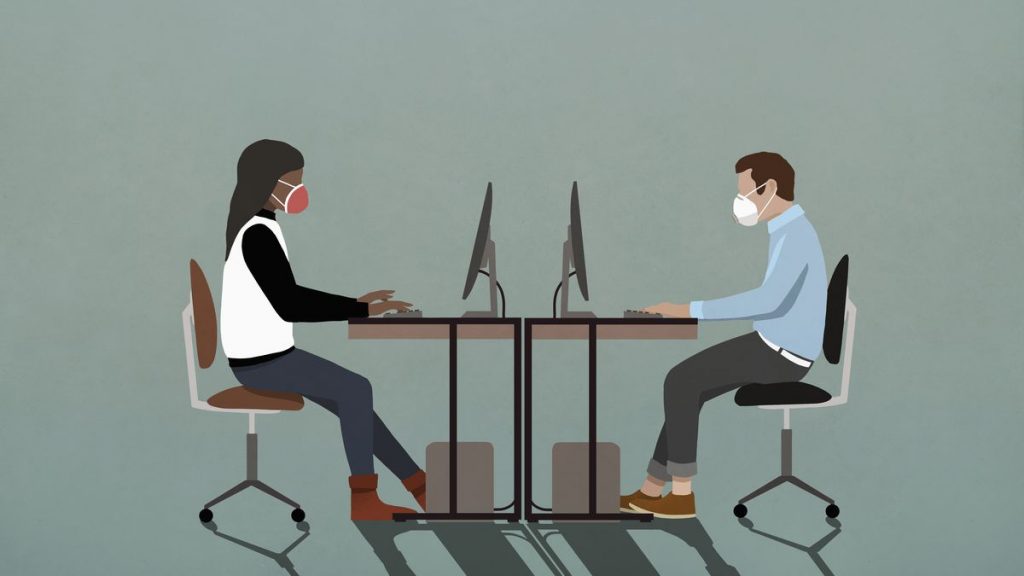Toxic Productivity and Mental Health: How Your Work Might Be Controlling You
By: Nandini Gupta
Education & Learning, Health & Welfare, Psychology, Social & Youth development,

Toxic Productivity and Mental Health: What is Toxic Productivity?
Toxic Productivity and Mental Health are Interlinked –
Toxic Productivity. Workaholism. Hustle culture. These terms are prevalent in society today. And for a good reason. Such practices are adopted by many teenagers, young adults, and adults in the modern world. With no end in sight.
So what is toxic productivity? Many perceive it to be a synonym for workaholism. While that is certainly close, toxic productivity takes workaholism to a higher level. It’s the innate, unhealthy desire to be productive at all times. At all costs. No matter what. It’s the feeling to go the “extra mile” even when it’s not expected of one.
Toxic productivity steals the feeling of gratification and accomplishment even when one completes a task. There’s always a lingering feeling of “I could’ve done more.”
“Toxic productivity makes us feel like a failure if we’re not constantly doing,” says Simone Milasas, a business coach and author of “Joy of Business.” “When toxic productivity is leading your life, you judge yourself every day for what you haven’t done, rather than looking at what you have accomplished.”

(Pic credit: https://bit.ly/3mIKx9H)
Toxic Productivity and Mental Health: Relation to the Pandemic
When the pandemic hit and countries went into lockdown, there was an increased amount of time on everyone’s watch. Individuals could take time for themselves, spend more quality time with family, and develop new fun hobbies. But, that wasn’t the case. Instead of slowing down as the world around them did, people took an even “extra mile” to set unrelenting and unrealistic goals for themselves. And then they set out to achieve them.
Going into lockdown was similar to setting foot in an uncharted area. People faced a pressing sense of uncertainty and to cope with it, they worked instead of finding the root cause.
“We could have used our free time to rest, recharge, and restore ourselves, but many of us filled those hours with more work as a way to feel worthy, fulfilled, and in control,” notes Kathryn Esquer, a psychologist and founder of the Teletherapist Network.
A viral productivity-pushing tweet by Jeremy Haynes, CEO of Megalodon Marketing, took the notion of toxic productivity and hustle culture even further. Here’s what the tweet said:
“If you don’t come out of this quarantine with either:
- A new skill
- Starting what you’ve been putting off like a new business
- More knowledge
You didn’t ever lack the time, you lacked the discipline”
Similar Post –
While being productive and achieving one’s goals is important, over-working can often change the game. Eventually, one is going to burn out.
“In general, when our environment presents us with stressors or threats that are well beyond our control, often we find ourselves focusing on small things within our immediate environment in which we can control – such as cleaning our house or excelling at work projects,” continues Esquer. “The problem is, it masks the true stress and discomfort of our current situation.”

(Pic credit:https://bit.ly/3kAtTGE)
Toxic Productivity and Mental Health: Relation to Students
The practices of toxic productivity are growing rapidly amongst the youth. Generation Z is reported to be the most anxious generation of all time, with 54 percent of people feeling stressed. And this was before the pandemic. Covid-19 has just made matters worse.
With the youth studying day and night to get into elite universities and then working part-time or full-time alongside taking courses throughout college to get a decent job upon graduation, the pressure on them is constantly building up.
“Toxic productivity is this radical obsession with self-improvement above all else,” explains Dr. Julie Smith.
This is why students feel a sense of guilt growing inside them whenever they’re not working, even when it’s time to rest.
During the pandemic, when education switched to virtual platforms, students felt a constant need to always be available. The concept of work-life balance blurred from everyone’s memory.
All this combined with limited or zero forms of social interaction and massive pressure from social media has made the battle for students extremely hard to fight.
However, the symptoms can be hard to recognize. “Toxic productivity can be hard to identify because of the high value society places on being productive professionally, socially, and culturally, and because people are often externally rewarded for productivity,” says Dr. Welsh, a faculty member at Antioch University in Los Angeles.
Toxic productivity can also become addicting. Every time one finishes a task, there’s an inner rush of the feeling of accomplishment, which makes people want to continue to achieve more and more. Over time, one’s body develops a tolerance and requires more dopamine and adrenaline to deliver the initial rush.

(Pic credit: https://bit.ly/3zvL7v5)
Toxic Productivity and Mental Health: Relation to Health
But the problem doesn’t stop with that. Toxic productivity can be a sign of high-functioning depression. Working all the time can be seen as an act to mask feelings of sadness, decreased energy, guilt, or low self-esteem since one is putting all energy into a job or other goal-oriented tasks.
If one is always “on” or in “work mode,” that can be a sign of toxic productivity. For instance, if one is constantly replying to emails even after work hours, then that can soon turn into toxic productivity.
If one’s self-worth is based on only one’s work, then that’s another sign. Neglecting other areas of one’s life, for example, one’s social life can cause trouble in the future, too.
Toxic productivity causes both mental and physical burnout. Chronic stress is associated with higher rates of depression and anxiety and an increased risk of heart disease, cancer, and type 2 diabetes amongst other illnesses.
Similar Post –
Toxic Productivity and Mental Health: The Solution
So what’s the solution? Instead of asking “What should I be doing right now?” ask “What could I do or create with ease now?” A lot of the time, when one has successfully completed a project, one doesn’t take the time to reflect and quickly moves on to something new. Slowing down and taking things one step at a time is helpful.
Putting self-care on one’s to-do list is a must. Yes, you read that right. Just like writing deadlines makes one want to work towards them and achieve them, similarly writing self-care habits is beneficial. The more one writes them, the more one will work towards them and eventually make them a habit. Self-care habits could vary from person to person. For some, it could be taking a hot bubble bath. For others, it could be sitting down to read their favorite novel.
Practicing professional detachment is crucial. “When you’re professionally detached, you treat everyone like clients: your boss, your peers, and colleagues,” says Laurie Ruettimann, a human resource consultant and author of “Betting on You: How to Put Yourself First and (Finally) Take Control of Your Career.” “You’re making the choice to be at your company. Show up to work, be professional, work hard, demonstrate your competence, but also have some emotional detachment from your job.”
“If you want to avoid toxic productivity, what I propose is that you lead your life instead of letting work or overproductivity lead it,” suggests Milasas. “You’ve only got one life. This isn’t a dress rehearsal or a dry run – this is it!”

(Pic credit: https://bit.ly/3mLZtnj)
Works Cited:
“Toxic Productivity or High-Functioning Depression? 4 Signs to Watch For.” Greenbrook TMS Therapy for Treatment-Resistant Depression and OCD.
Andersen, Charlotte Hilton. “9 Signs Toxic Productivity Is Impacting Your Life.” The Healthy, The Healthy, 25 June 2021.
JOHNSON, Haley, et al. “How the Pandemic Promotes Toxic Productivity.” GREY Journal, 28 Jan. 2021.
Tenore, Haley. “Opinion: ‘Toxic Productivity Is Dangerous to Students’ Mental Health.” The Arizona State Press, 27 Jan. 2021.
“What Is Toxic Productivity? Here’s How to Spot the Damaging Behaviour.” HuffPost, HuffPost, 5 Apr. 2021.
Similar Posts –
PRODUCTIVITY GUIDELINE FOR YOUTHS. Check here to read the full article.
DEALING WITH PTSD AND TRAUMA. Click here to read the full article.
Tags: competitive world, hustle culture, Mental Health, overproductivity, overworking, Productivity, self care tips, student mental health, toxic productivity, toxic productivity and health, toxic productivity and mental health, toxic productivity and students, toxic productivity and the pandemic, work mode, workaholism,










[…] Toxic Productivity and Mental Health: How Your Work Might Be Controlling You […]
[…] dopamine production from a young age, points towards a perilous future. But familial, social and academic pressures like neglect, parental abuse, competitiveness and bullying at school makes teenagers more prone to […]